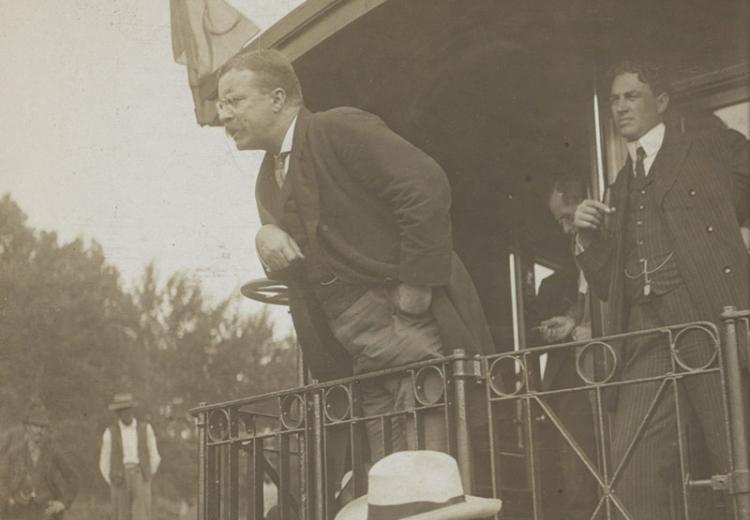The Jungle, Muckrakers, and Teddy Roosevelt

Teddy Roosevelt speaking at the back of a railroad car.
"There are in the body politic, economic and social, many and grave evils, and there is urgent necessity for the sternest war upon them. There should be relentless exposure of and attack upon every evil man, whether politician or business man, every evil practice, whether in politics, business, or social life."
—President Theodore Roosevelt, “The Man with the Muck-Rake,” 1906
Progressive reform in the early decades of the twentieth century depended upon journalism as an important tool to raise public awareness of serious societal problems. Investigative journalists, such as the socialist Upton Sinclair, played an important role in this movement. Sinclair’s novel, The Jungle (1906), based on his newspaper reporting, exposed the inner workings of the meat packing industry. The outrage that the book caused has often been singled out as the main reason for the passage of legislation to protect consumers.
Public outrage over Sinclair’s book strengthened the hand of Progressive reformers within the federal government such as Harvey Washington Wiley, the chief chemist at the United States Department of Agriculture, who had long been at work advocating for legislation to protect consumers. Wiley found a key ally in President Theodore Roosevelt, who championed a more aggressive government policy against those who would harm the public good.
Lesson One introduces students to journalist Upton Sinclair and his controversial novel, The Jungle, then moves to Washington DC to introduce the vision of President Theodore Roosevelt and the work of Harvey Washington Wiley.
In Lesson Two, students read several investigative newspaper articles leading to the landmark legislation of the Roosevelt Administration. There is also an optional excerpt from Roosevelt’s “Man with the Muck-Rake” speech from which this style of investigative journalism gets its name. These documents provide an opportunity for close reading of complex informational texts as well as understanding the historical and political context of reform.
Guiding Questions
Who led the movement for meat inspection and food and drug regulations?
What events led to the Meat Inspection Act and the Pure Food and Drug Act of 1906?
What role does investigative journalism play in the political process?
